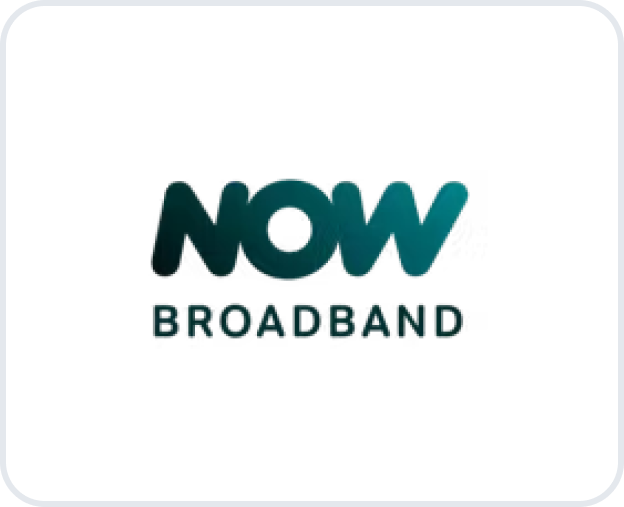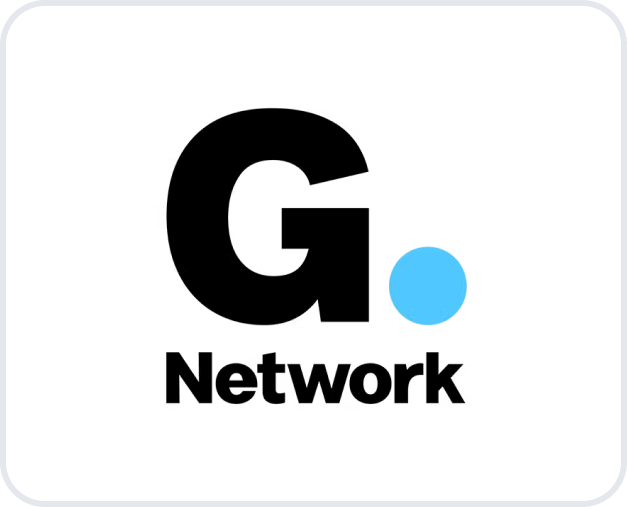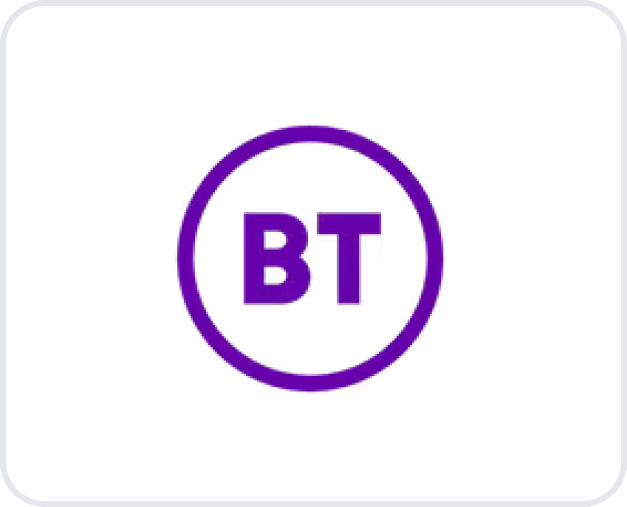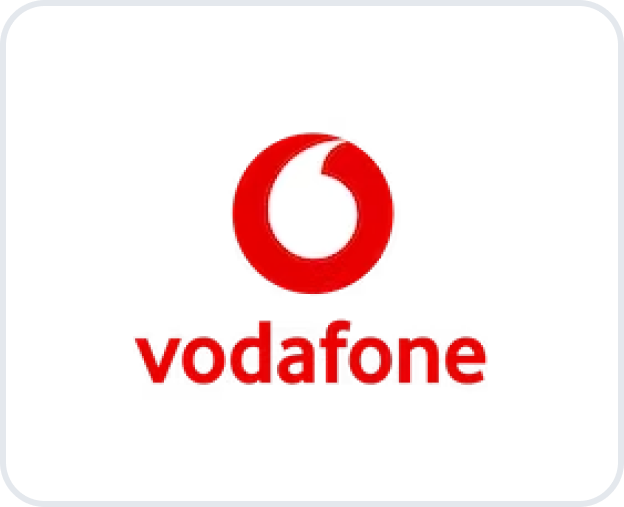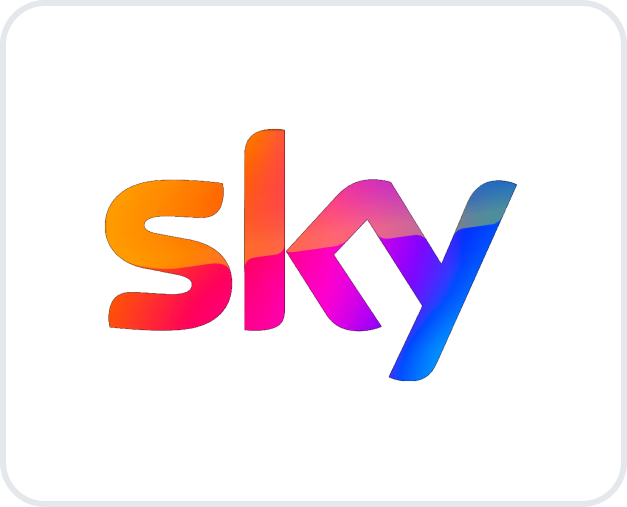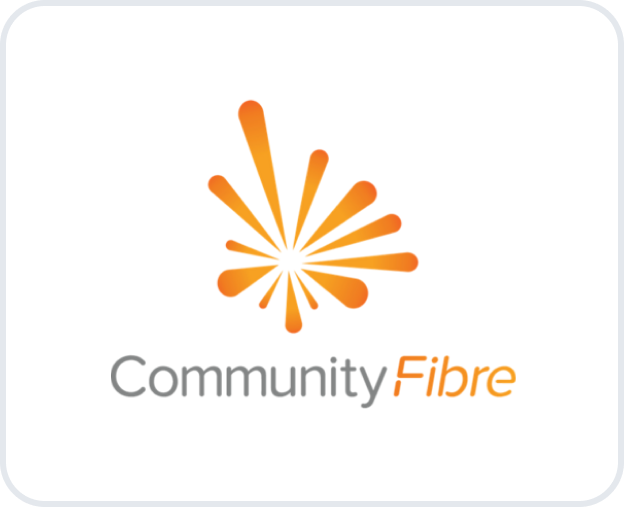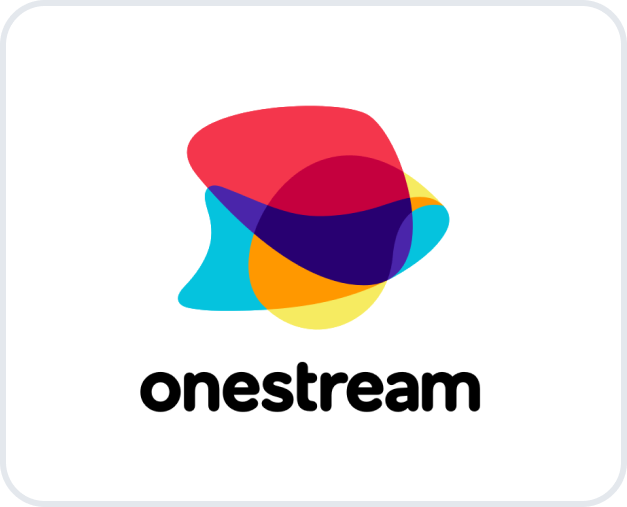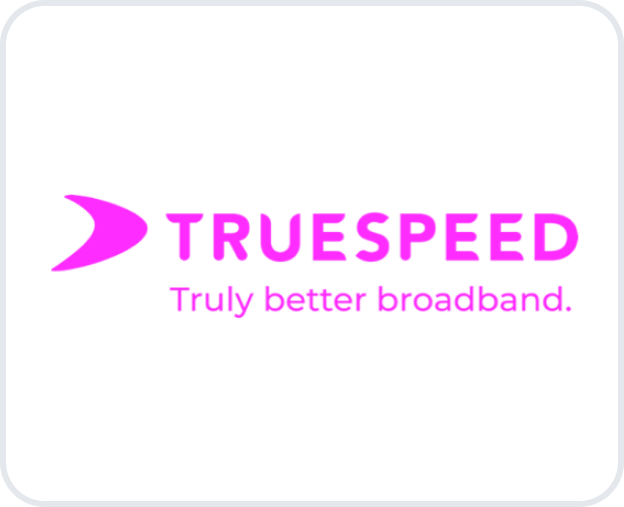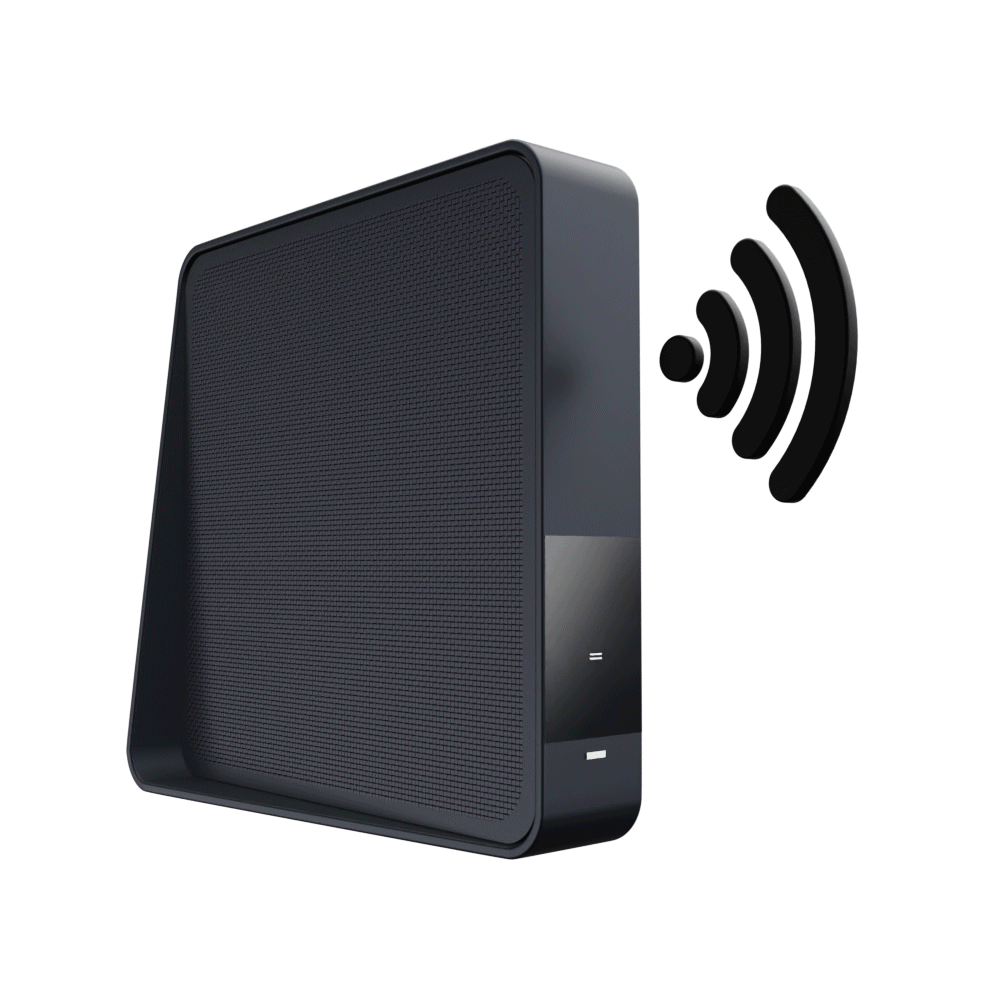You’re only seeing average speeds for your area Select your address and see the actual speeds you’d get in your home
Today’s fast-paced digital era requires most of our daily activities to be solely based on connectivity. But fibre broadband stands out to make it better whereby you could have an internet connection that is not just fast but also reliable, capable of handling tasks like streaming 4K movies, online gaming to seamless video conferencing and fast-speed downloads, all the while allowing multiple users simultaneously. And this is how fibre broadband works in helping its users reshape the way they lead their lives, work and engage in leisure activities. With this content, we will explain all you need to know about fibre broadband, what makes it different from standard broadband and why it’s the right choice for individuals who want the best Internet connection.
What is Fibre Broadband?
Fibre Broadband is the fastest broadband connection. It gives a fast and reliable connection for whatever you use the internet. Whether you are streaming online, gaming online, or working from home. Fibre broadband is a connection that relies on fibre optic cables to connect to your home. This cable allows for faster data transfer.
A range of broadband deals cater to your various internet needs.
What are the available types of Fibre Broadband?
There are two main types of broadband:
- Part Fibre (FTTC) and Fibre-to-the-cabinet: This is the most widely available fibre broadband, also known as ‘superfast fibre connection. FTTC relies on fibre optic cables from your provider’s broadband to your local cabinet in your street, then use old copper wires from your local cabinet to your home. FTTC download speed ranges between 30-70Mbps, which is suitable for most households. However, you may experience lag in connection as the distance from your home to the cabinet will determine your speed.
- Fibre-to-the-premises FTTC: This type of fibre utilises fibre optic cable to your home. This allows access to ultrafast and gigabit speeds ranging from 100Mbps to 1Gbps, depending on your location. FTTC is not as widely available as FTTP and is only available to about 50% of UK homes.
Broadband providers that offer fibre connection
Most of the popular providers offer this broadband. But to have access to them depends on its availability in your area. You should also be aware of what each of them offers.
Some of the providers offering this Broadband include:
- Now Broadband
- BT
- Onstream
- Gigaclear
- Sky
- TalkTalk
- Hyperoptic
- Community Fibre
- Virgin Media
- Vodafone
- Shell Energy
- Kcom
- EE
- Hyperoptic
- Truespeed
- Kcom
The best Fibre Provider in the UK
What’s considered the ‘best’ provider depends on different individuals and their needs. There’s no universal answer since your ideal fibre broadband depends on various factors.
BT remains the most popular fibre broadband provider, and it’s no wonder considering BT owns Openreach, the nationwide broadband and telephone network that connects nearly all UK homes. This broad connectivity makes BT broadband readily accessible. With other popular providers like TalkTalk, Sky, and Virgin Media (though they don’t offer fibre broadband).
It is important to note that other providers use the Openreach network to deliver their broadband services. Therefore, if BT broadband is an available option at your address, then it’s possible also to have access to broadband services from TalkTalk, Sky, EE, Plusnet, and others.
The fastest fibre broadband speeds are up to 900Mbps to 1Gbps. This speed is available to providers like BT, Virgin Media, Hyperoptic, Sky, Community Fibre, Vodafone, and EE. But keep note that this speed is not available to all areas. When searching for the best broadband and TV bundle, the popular providers are Sky and Virgin Media.
How to find the Fibre broadband Deals
- Decide the speed you need:
The first thing you need to consider when looking for the right fibre broadband is the speed requirements of your household; you have to consider everyone’s needs because the more people using the internet, the faster the internet speed you will need. But the best part is fibre broadband speed is suitable for every household’s internet needs at some points; you may need a full fibre speed to handle all the devices in your home.
What Fibre Speed do I need?
This is the rough rule of thumb to know the speed required for your household.
- 1-2 people per household: A cheaper, slower fibre broadband of 35Mbps could handle internet usage. However, if you are both heavy internet users mainly streaming 4k videos or gaming, you may have to look for a faster fibre broadband.
- 3-4 People: If your household occasionally uses the internet, then a speed of 35Mbps will do. But if your kids consistently stream Netflix, watch YouTube videos, or play online games. The ideal speed for your household will be 50-100Mbps.
- 5+ People: If you casually use the internet, 50-100Mbps will be your best bet. However, the internet users in your household mostly use the internet for HD TV streaming, online gaming, and working from home, which usually involves video conferencing. In that case, a speed of 100Mbps upward will do a good job.
2. Consider Bundles for television and home phone services:
In finding the best broadband deal for you, consider bundling your deals with other services like Pay-Tv and Moblie contracts. One of the best deals may include multiple services and a cheaper monthly rent payment with a single provider. Before combining both services regularly, be sure you use these services regularly so you can save monthly costs and avoid making payments for two different bills. By combining broadband and TV deals, you get both services in a contract, but they are only offered by specific providers like BT, Sky, TalkTalk, VirginMedia and others. While some providers only allow you to combine Broadband and TV, others combine mobile phones with your services.
3. Monthly Price:
Choose a monthly price that you are comfortable with. By doing this, the cost or total will always fall within your budget. The price of every broadband deal is usually influenced by its speed or the services the providers are bundling them with. You should have a targeted price range once you know what you want from your broadband or broadband package. For context, a fibre broadband-only deal of 60Mbps usually ranges between £22-£30 per month in 2023.
What is Full-Fibre Broadband?
Most standard fibre connection relies on a combination of fibre optic lines to your local cabinet and traditional copper lines to your home. In contrast, full-fibre broadband, also known as fibre-to-the-premises (FTTP), employs fibre optic cables throughout the connection.
The essential advantage is its ability to deliver incredibly fast speeds, often surpassing 1,000Mbps (1Gbps). Additionally, it offers heightened reliability and lower latency, enhancing tasks like swift file downloads, seamless, high-quality video streaming, online gaming, and smooth video calls. However, the drawback is its relatively higher cost than regular fibre broadband. Additionally, FTTP is not as widely accessible, and there is a more limited selection of providers.
Can I get Fibre Broadband in my Area?
Fibre broadband is available to 95% of the majority in the UK, so you will probably get some form of fibre broadband in your area. However, some reasons can make it impossible for you to get fibre broadband in your area.
Certain regions are heavily populated by individuals living in suburban areas, making it challenging to create space for expanding fibre optic connections. Also, the cost of installing fibre networks in rural areas where houses are few and far from one another.
VirginMedia and BT have the highest fibre broadband coverage in the UK if considering the providers with more coverage. Our broadband availability checker is the best way to determine if fibre broadband is available in your area.
How does Fibre Broadband work?
Fibre broadband delivers data differently from ADSL(standard broadband), which uses your phone line to deliver internet to your home. Fibre broadband relies on plastic-glass cables to deliver internet to your home, which offers ultrafast speed compared to slow ADSL.
The fibre cables allow the internet to be delivered faster even over a long distance, which the telephone line cannot sustain after a long distance. Fibre is less prone to internet outages or slow internet. So, working with fibre broadband provides a faster download and upload speed for a smooth internet experience.
Do I need Fibre Broadband?
We recommend you get a fibre connection if it’s available in your area as it has a faster and more stable internet to work with compared to ADSL. Also, many providers offer fibre packages with different bundled services, making comparing prices more accessible. To know your required speed, consider the number of people in your household and your internet usage.
A broadband package is best for you if:
- Large household: You should consider opting for fibre broadband if your household internet usage revolves around streaming on Netflix, streaming 4K movies or videos.
- Online Gamer: You need fast speed if you stream or download many games.
Fibre Broadband Pros and Cons
Nowadays, fibre broadband is essential and accessible to every home, and there seems to be no downside. However, there are downsides you should pay attention to.
| Pros | Cons |
| More reliable and consistent compared to ADSL. Which makes it less prone to lagging or outages. | Total fibre that offers a speed as high as 900Mbps is not accessible in the UK; only 50% of the homes in the UK have access to it. |
| Allows multiple devices and streams, no matter what you do with your phone. | If you are using part fibre, you may occasionally experience lagging as part fibre still relies on copper wire to get internet to your home. |
| Part fibre is available to most homes which means no matter your area, you can have access to a form of fibre broadband. |
How much does Fibre Broadband Cost?
The cost of Fibre broadband in 2023 ranges between £20 – £35 a month for a superfast broadband. The price variations depend on different factors like speeds, package, provider, and contract length. While smaller fibre providers in 2023 charge £17 – £20 per month.
For an ultrafast(FTTP)fibre broadband-only package of 900Mbps, the cost for it is £50 upward per month. But for ultrafast broadband, you are not expected to pay for a phone line, which reduces your overall cost. Keep in mind that broadband prices change from time to time as most providers use it to win customers, which is an opportunity for you to look out for new deals, compare them, and find the cheapest and fastest providers.
Do I need a Landline for Fibre Broadband?
Yes, you need a landline. If you use (FTTC) superfast broadband, you need a phone line to deliver your internet to your home. Your provider has to use copper wires to deliver internet from the street cabinet to your home. Line rentals are usually bundled with your fibre broadband, and you do not have to pay extra if you do not want to.
However, with FTTP total fibre, you do not require a physical phone line as FTTP doesn’t use
What is the Difference between Superfast, Ultrafast and Gigabit Fibre Broadband Speed?
Fibre-optic Broadband Speed is divided into three categories
- Superfast: This covers broadband with average download speeds of up to 30Mbps, ranging from 38-67 Mbps. BT’s Superfast Fibre 1 and Fibre 2, and most fibre providers offer superfast connections.
- Ultrafast: Ultrafast connection is not as accessible as superfast broadband; ultrafast broadband offers an average download speed of 100 Mbps.
- Gigabit or Gigafast: This is the fastest fibre package, also 1 gigabit per second. 1 Gbps or higher. Providers like BT, Virgin Media and Hyperoptic offer this connection.
Why Can’t I get Fibre Connection?
If you live in a remote area, you are less likely to get access to fibre broadband compared to the city. In other situations, fibre broadband may not be available in highly populated areas like parts of London. This can be due to challenges in performing work in highly congested areas or constraints imposed by state aid regulations that limit investment in some areas. If you live in block apartment buildings, you may have restricted access to broadband options. While some new buildings now include broadband during their development, you can be limited to a provider or a particular broadband option.
When will a fibre connection be available in my area?
The UK has two primary fibre optic networks: the Openreach network, which many significant providers use, and Virgin Media’s proprietary cable network.
Openreach has a webpage stating its plans for expanding full-fibre broadband coverage. To learn when total fibre will become accessible in your area, just input your postcode, and you will receive comprehensive details about its current availability, upcoming plans, or ongoing evaluation. Discover when Openreach is extending its coverage to your locality. If you would also like to find out when Virgin Media will be available in your area, it’s best to call them or visit their website and register for updates.
How to install a Fibre optic Broadband
You can set up your new fibre service independently if you already have an active landline phone connection. This applies to most customers because most homes already have an established phone line.
However, if you do not have an existing line, an engineer must visit your home to install a new one. If you live in a rented apartment, you should agree with your landlord or letting agency. Your new provider can provide details on the process if your landlord requires information.
Some fibre packages include complimentary installation, while others pay a fee to cover equipment like routers, sockets, cables, etc. Also, you might need an activation fee to start your service. It is essential to carefully review the terms of your broadband deal to understand what is included and what is not before committing to the contract.
Who is the Best Full-Fibre Provider
This decision can be difficult as it depends on what you want from your broadband package. If speed is essential to you, consider providers like Hyperoptic or Community Fibre, as they are known for offering the fastest broadband speed of up to 1Gbps. Consider an affordable full-fibre provider like Trooli or Gigaclear if you want the best deal. Consider providers like BT, EE, Sky or Vodafone if you prefer a reliable, popular provider. These are your best bet. Sky, in particular, is known for its excellent customer service, as indicated in recent Ofcom reports.
How can I install Full Fibre Broadband?
Installing full-fibre broadband can be more tasking compared to part-fibre broadband. The lines are already set up with part-fibre connections, so it is easy for an engineer to connect a cable.
However, for full-fibre connections, you may need to install cables from scratch, especially the one linking your home to the street. An engineer must set up a cable to your front door and inside your home to get your router connectivity.
In general, fibre installation can take about two hours. It is also important to note that installation time varies depending on your provider. Some popular providers have extensive networks that simplify their installation process, while others need more time to get your connection running.
Compare Broadband deals with Docalla
Sky Broadband
£45.90/month
Unlimited minutes
12 months of 500 GB data
12 months
Contract length
£30.9 upfront cost
250 mbps Total Cost
Unlimited Text
Sky Broadband
£45.90/month
Unlimited minutes
12 months of 500 GB data
12 months
Contract length
£30.9 upfront cost
250 mbps Total Cost
Unlimited Text
Sky Broadband
Offer ends 30th Jan. 2023
£45.90/month
Unlimited minutes
12 months of 500 GB data
12 months
Contract length
£30.9 upfront cost
250 mbps Total Cost
Unlimited Text
Sky Broadband
Offer ends 30th Jan. 2023
£45.90/month
Unlimited minutes
12 months of 500 GB data
12 months
Contract length
£30.9 upfront cost
250 mbps Total Cost
Unlimited Text
Sky Broadband
£45.90/month
Unlimited minutes
12 months of 500 GB data
12 months
Contract length
£30.9 upfront cost
250 mbps Total Cost
Unlimited Text
Sky Broadband
£45.90/month
Unlimited minutes
12 months of 500 GB data
12 months
Contract length
£30.9 upfront cost
250 mbps Total Cost
Unlimited Text
Sky Broadband
Offer ends 30th Jan. 2023
£45.90/month
Unlimited minutes
12 months of 500 GB data
12 months
Contract length
£30.9 upfront cost
250 mbps Total Cost
Unlimited Text
Sky Broadband
Offer ends 30th Jan. 2023
£45.90/month
Unlimited minutes
12 months of 500 GB data
12 months
Contract length
£30.9 upfront cost
250 mbps Total Cost
Unlimited Text
